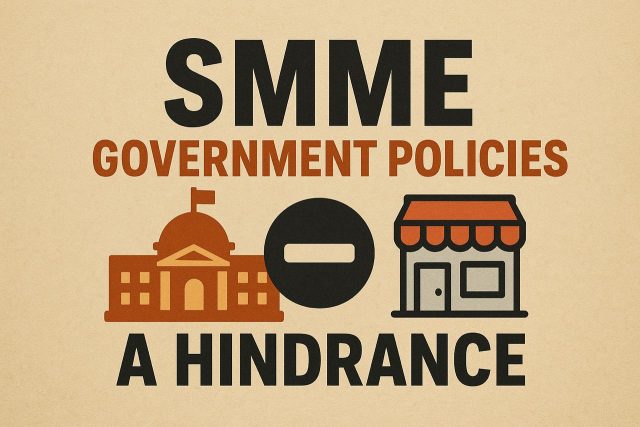
Government is a big stumbling block in SMME growth for South Africa’s SMME economy to grow, the government and its various laws has to be managed in such a way that vested interests are neutralised.
Prof Daniel Meyer. Professor, School of Public Management, Governance and Public Policy gave an interesting and worrying presentation on the role of government in supporting entrepreneurship and small business development. He highlighted critical issues such as policy uncertainty, ineffective governance, and the burdensome regulatory environment that stifles entrepreneurship.
Meyer provided a detailed analysis of the country’s business environment, noting a low GEM rating (business environment) for government support of entrepreneurship and a concerning trend of startup failures. South Africa scored on the same levels as Brazil and Venezuela. He emphasised the need for improvements in infrastructure and skills development to enhance international competitiveness.
Meyer also the need for harmonised licensing laws to support small and medium enterprises. The Small Business Institute members underscored the urgency for policy reforms and collaborative efforts to stimulate economic growth and inclusivity in South Africa.
Key Areas of Law for Small Businesses in South Africa:
- All the laws linked to SARS and the compliance with tax laws, including income tax and potentially reduced rates for small businesses, is required.
- Labour Laws: Businesses need to comply with laws related to employment.
- Intellectual Property: Protection of trademarks, patents, and copyright falls under intellectual property law.
- Health and Safety: Compliance with health and safety regulations is essential for most businesses.
- Industry-Specific Regulations: Depending on the sector, specific permits and licenses may be required.
He criticized the current government’s size and inefficiency, suggesting that strong leadership and a clear economic vision are essential for fostering growth.
MCCI supports the proposal that businesses must be licences. This way you can ensure that the business is legitimate, has the right credentials. However, this must not be another burden, and the chamber movement proposed that businesses are registered at the various Chambers of Commerce country wide.


